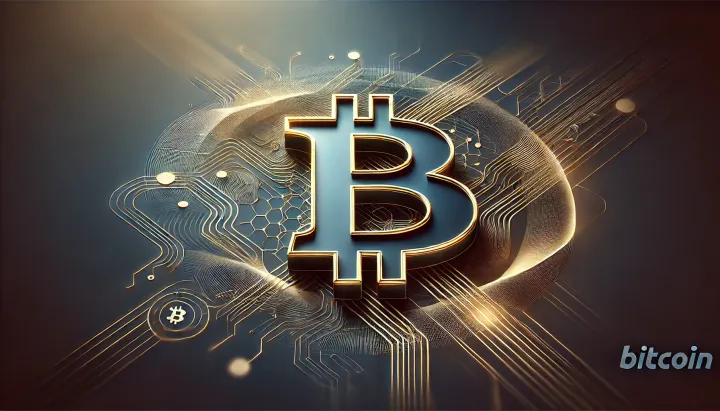Zen, Inflation, and the Bitcoin Escape
The April 23 2025 episode of The Bitcoin Edge with Paula features Jeevs explaining how COVID travel mandates, relentless inflation, and Zen practice converged to drive his full-time embrace of Bitcoin.

- My 'briefing notes' summarize the content of podcast episodes; they do not reflect my own views.
- They contain (1) a summary of podcast content, (2) potential information gaps, and (3) some speculative views on wider Bitcoin implications.
- Pay attention to broadcast dates (I often summarize older episodes)
- Some episodes I summarize may be sponsored: don't trust, verify, if the information you are looking for is to be used for decision-making.
Summary
The April 23 2025 episode of The Bitcoin Edge with Paula features Jeevs explaining how COVID travel mandates, relentless inflation, and Zen practice converged to drive his full-time embrace of Bitcoin. He argues that fiat debasement normalizes corruption while Bitcoin’s fixed supply restores ethical incentives and low-time-preference living. His reflections spotlight urgent research needs around retirement access, grassroots adoption in India, and the psychological effects of scarcity-based money.
Take-Home Messages
- Corrupt-Money Incentive: Fiat inflation fuels bribery and erodes public trust; Bitcoin’s hard cap realigns values.
- Low-Time Preference: Scarce digital ownership encourages patient saving and long-term planning over short-term hustling.
- Grassroots Momentum: Everyday “stackers” in India illustrate bottom-up adoption that can outpace institutional moves.
- Retirement Bottleneck: Legacy 401(k) rules block self-custody, pressing regulators to modernize fiduciary frameworks.
- Zen Narrative Appeal: Linking Bitcoin to spiritual balance broadens its reach beyond tech and finance circles.
Overview
After his father died, Jeevs’s ordeal entailed waiting a year to visit his grieving mother because vaccine passports barred travel, an experience that laid bare the link between state power and monetary control. Losing half his brokerage savings in the March 2020 crash further eroded trust in fiat markets and set him on a year-long study of money. Discovering Bitcoin, he saw an escape from arbitrary authority.
Jeevs illustrates inflation’s toll by noting that 100 rupees once fed six people but now barely buys a coffee, and he recalls his father’s struggle to stay honest amid bribery in India’s gas sector. He contends that limitless currency supplies invite moral compromise, whereas Bitcoin’s hard cap rewards principled behavior.
Drawing on Zen, Jeevs likens Bitcoin’s node network to a “connected consciousness” balancing autonomy and collectivity. Meditation, he argues, mirrors the blockchain’s transparency: both reveal, rather than obscure, truth. This framing recasts Bitcoin as a discipline that unites technical rigor with spiritual insight.
The conversation closes with forward-looking themes: frictionless retirement access, education that normalizes volatility, and field observations on Indian adoption during Jeevs’s upcoming trip. The interview underscores research gaps in behavioral finance, policy sequencing, and cultural messaging.
Stakeholder Perspectives
- Regulators: Gauge inflation-driven corruption risks and weigh fiduciary updates for retirement plans.
- Retail Savers: Seek an inflation hedge and guidance to navigate price swings confidently.
- Retirement Providers: Face mounting demand for direct Bitcoin exposure amid regulatory uncertainty.
- Educators: Need curricula that connect scarcity, ethics, and behavioral finance for diverse audiences.
- Bitcoin Advocates: Leverage moral and Zen narratives to expand grassroots adoption without diluting technical accuracy.
Implications and Future Outlook
Persistent fiat inflation may intensify public demand for sound-money alternatives, forcing central banks to confront the ethical dimension of monetary policy. Governments that ignore these concerns risk heightened distrust, whereas those integrating transparent reserve practices could stabilize governance and attract capital. Coordinated, cross-border frameworks will be essential to manage the transition.
Modernizing retirement regulations could unlock trillions in long-term savings, yet unresolved fiduciary guidance and volatility fears remain barriers. Product designers and educators who demystify self-custody can smooth adoption and reduce panic selling. Success in this arena would mainstream Bitcoin without sacrificing individual sovereignty.
India’s high-savings culture and inflation exposure make it a bellwether for grassroots adoption. If psychological shifts toward low-time preference scale, Bitcoin could reshape consumer behavior, tax bases, and development financing across emerging markets. Policymakers will need agile strategies to balance innovation with financial stability.
Some Key Information Gaps
- How does persistent fiat inflation quantitatively influence corruption indices across emerging economies? Linking monetary policy to governance quality will guide anti-corruption reforms and reserve-strategy debates.
- What regulatory changes are required to allow direct Bitcoin allocation within U.S. 401(k) plans? Clear fiduciary standards could unlock mass adoption while protecting retirees.
- What socio-cultural factors most influence Bitcoin adoption among India’s urban middle class? Understanding drivers and blockers informs targeted education and inclusive financial policy.
- To what extent does owning a scarce digital asset shift individual time preferences toward long-term planning? Behavioral data will steer curriculum design and predict macroeconomic effects.
- Which policy pathway—individual-led or institution-led—produces faster, more resilient Bitcoin integration? Clarifying sequence effects helps allocate resources efficiently and mitigate systemic risk.
Broader Implications for Bitcoin
Monetary Sovereignty Reimagined
Bitcoin’s fixed supply and decentralized consensus challenge the premise of nation-state fiat issuance. As savers benchmark in Bitcoin, governments may adopt hybrid reserve models blending Bitcoin with traditional assets to maintain credibility. Such shifts could redraw global financial hierarchies and constrain discretionary monetary policy.
Behavioral Finance Transformation
If scarce-asset ownership reliably lowers time preference, consumer credit models, retirement planning, and labor-market dynamics may pivot toward patience and savings. Marketing built on instant gratification could lose potency. Policymakers would need new tools to forecast spending and investment cycles.
Emerging-Market Competitive Edge
Inflation-prone countries may compete to attract Bitcoin capital through favorable tax and custody rules. Early adopters could gain an investment influx that accelerates infrastructure and technology upgrades. Late movers risk capital flight and diminished policy autonomy.



Comments ()